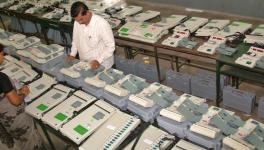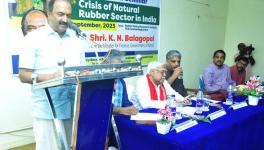WTO Nairobi Package: India Packed off Empty Handed and Humiliated
Civil society groups in India have come out strongly against the outcome of the WTO Nairobi Ministerial citing concerns on both the negotiating process and substantive issues in the various texts adopted. The Ministerial was extended by an extra day due to disagreements from various developing countries, including India, and was finally concluded in the late hours of 19 December with the adoption of the Nairobi package which includes a Ministerial Declaration and six related decisions on agriculture, cotton and Least Developed Countries (LDCs).
This is a dismal failure by the Indian delegation. From a reading of the declaration it is clear that the ‘development mandate’ of the Doha Round has been thrown out since there is no unanimity on the existing Doha structures and architecture. Further, the declaration recognises that some members wish to identify and discuss other issues for negotiations. This opens the door for contentious new issues such as Investment, Government Procurement and Global Value Chains to be brought into the WTO’ said Former Finance Secretary and previous GATT ambassador S P Shukla.
Shukla further argued that according to the WTO agreement, if there was no consensus; decisions need to be arrived at through specific majorities. Given the lack of agreement between the developed and developing countries at Nairobi, India should have exercised this legal right when the talks got extended by a day. The Commerce Minister should explain to the Parliament the reasons why India chose to capitulate on 19 December’, said Shukla.
WTO expert and Professor at Jawaharlal Nehru University (JNU) Biswajit Dhar argues that not only has India got nothing out of Nairobi but has conceded ground on specific areas. ‘The decisions on completely eliminating export subsidies by 2023 will further aggravate the crisis in our sugar sector. The opening in the text for new issues is also an indication that now the USA and EU will aggressively push for elements from the Trans Pacific Partnership (TPP) and Trans Atlantic Trade and Investment Partnership (TTIP) into the WTO agenda. India will once again be on the backfoot, said Dhar.
The Convener of the National Working Group on Patent Laws and WTO, Dr. Dinesh Abrol said that the Parliament should urgently debate the commissions and omissions of the Modi Government at Nairobi. ‘We demand that the Government be immediately asked to prepare a White Paper on the WTO negotiations and on various free trade agreements (FTAs) and autonomous liberalisation to stop further damage to the erosion of development policy space which is so crucial to the realisation of development concerns which include the basic rights to food, employment, education, public health and safe environment.
Researcher at the Third World Network, Ranja Sengupta said that ‘On the two key demands placed by India; permanent solution for public food stockholding and the Special Safeguard Mechanism (SSM), we got nothing more than what was present before Nairobi. The introduction of new issues such as Investment and Government Procurement will have adverse implications for our agriculture sector as well’.
If Bali 2013 was a mistake, Nairobi 2015 was a disaster. In 2014, India agreed to the Trade Facilitation (TF) agreement unilaterally without getting anything in return. The 20th anniversary of the WTO will be remembered as the graveyard for development concerns and multilateralism, said Afsar Jafri from Focus on the Global South.
Disclaimer: The views expressed here are the author's personal views, and do not necessarily represent the views of Newsclick.
Get the latest reports & analysis with people's perspective on Protests, movements & deep analytical videos, discussions of the current affairs in your Telegram app. Subscribe to NewsClick's Telegram channel & get Real-Time updates on stories, as they get published on our website.
























